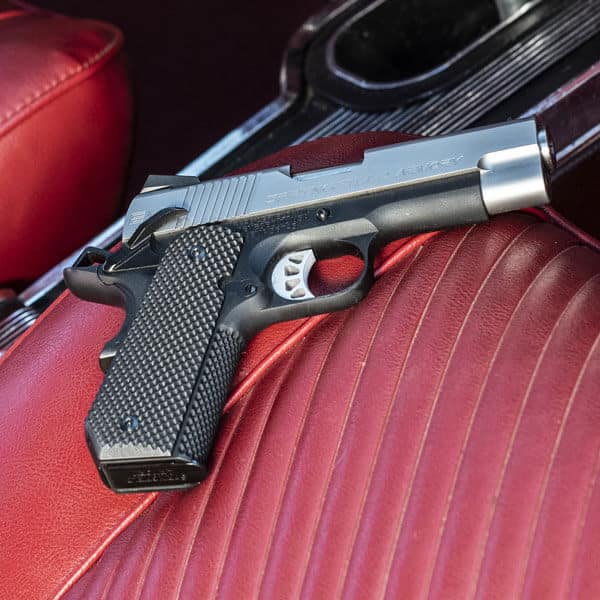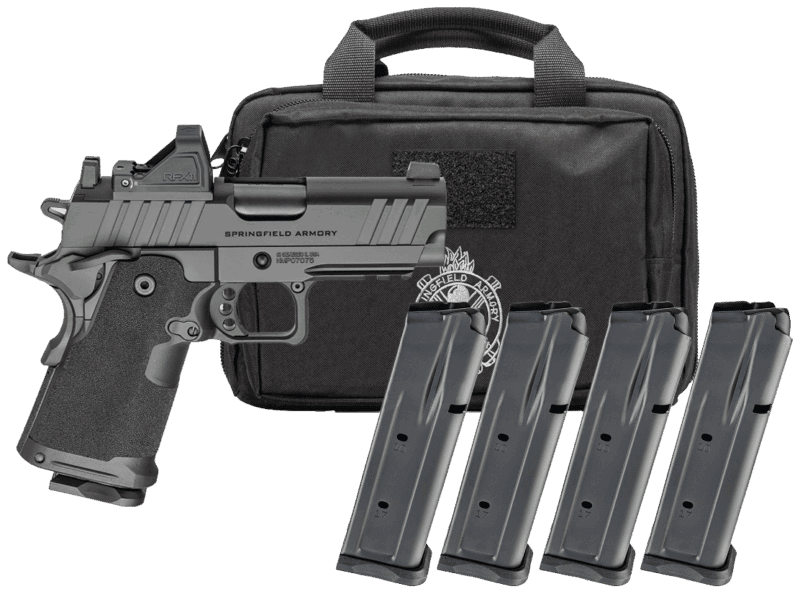Want to Be a Professional Shooter?
July 18th, 2020
3 minute read
It’s no surprise to Rob Leatham that he loves shooting handguns. He was born into a family of “professional plinkers,” says this native of Mesa, Arizona, and they spent their free time reloading and shooting. So the young Leatham became a reloader, shot every chance he got and entered his first handgun competition at the ripe old age of 17.
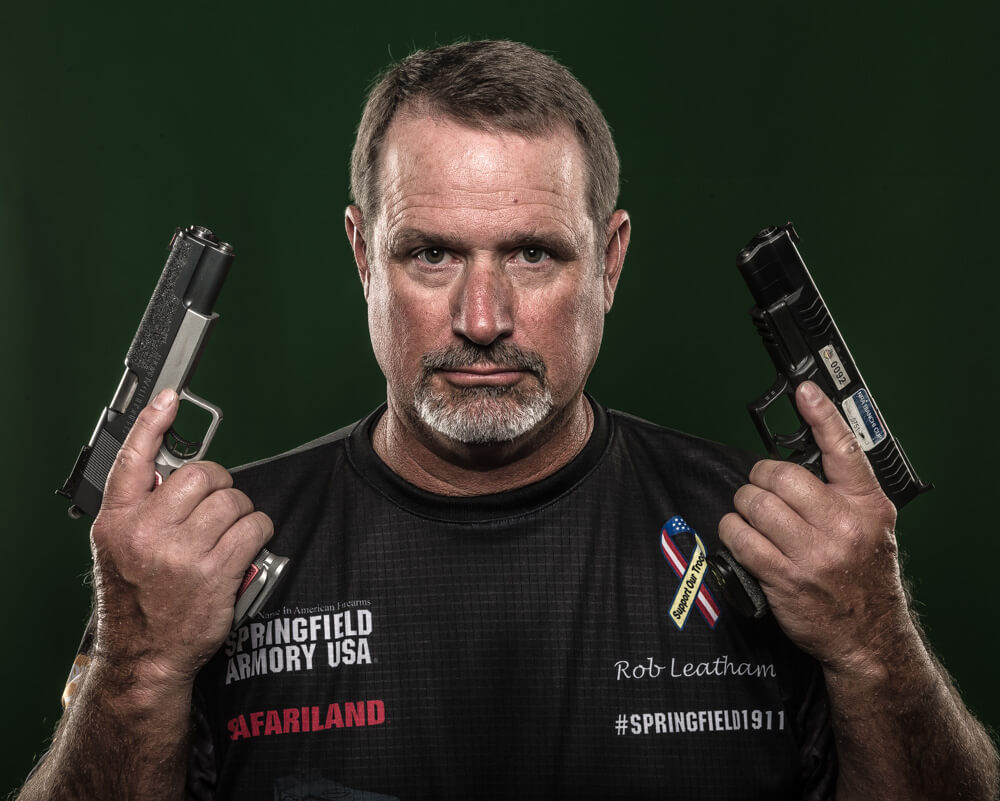
More surprising for Leatham is that his passion for shooting became his day job. Probably the best-known competitor on the action shooting circuit, Leatham is a 24-time U.S. Practical Shooting Association national champion. In 1989 — as his wins were multiplying and action shooting was gaining in popularity — Springfield Armory signed him to a full-time contract, with benefits. His job, then and now?
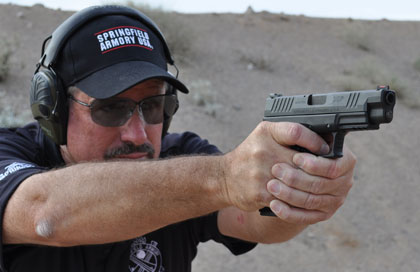
“It really hasn’t changed a lot over the last 20-plus years,” says Leatham. “To go shooting. How good is that?”
Actually, there’s a little more to it all — for Leatham and other pro shooters. Yet, the bulk of his job with Springfield really is to shoot handguns competitively, to win matches frequently, and in the process promote the Springfield Armory line of handguns.
There’s a relatively small cadre of people who, like Leatham, shoot for a living. But it’s growing. Today, nearly every large handgun and ammunition manufacturer — and numerous accessory makers — sponsors at least several individual shooters.
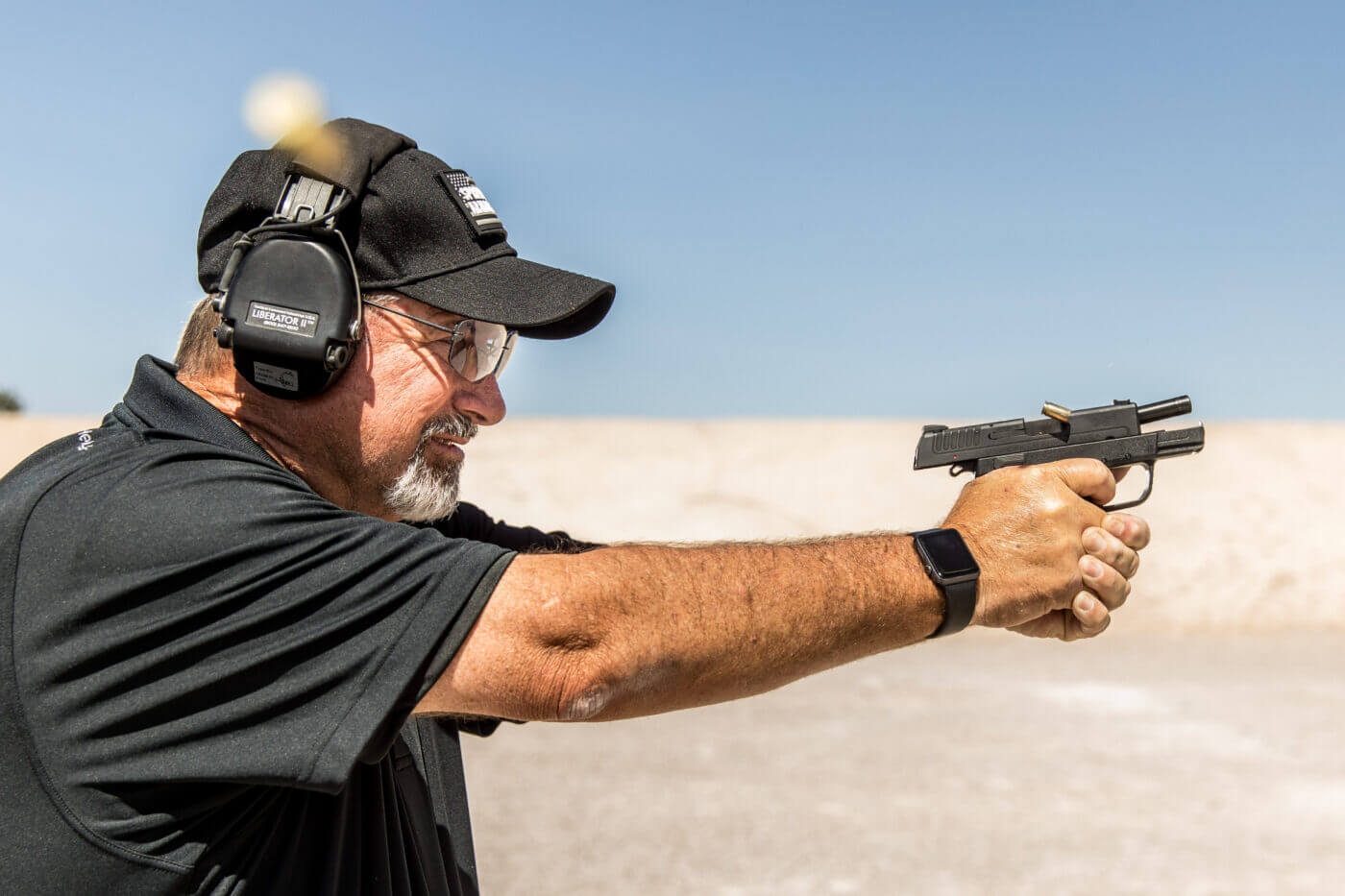
At ammunition maker Hornady, Neal Emery oversees the 20-plus members of Team Hornady Pro Staff, which includes the likes of top handgun competitors Doug Koenig and Max Michel.
“Typically, our pro staffer is someone who either wins consistently or is in the top percentile,” says Emery. In the past, word of mouth within the shooting industry brought in most team members. Now, though, Hornady is implementing a more formalized process to better evaluate credentials and qualifications.
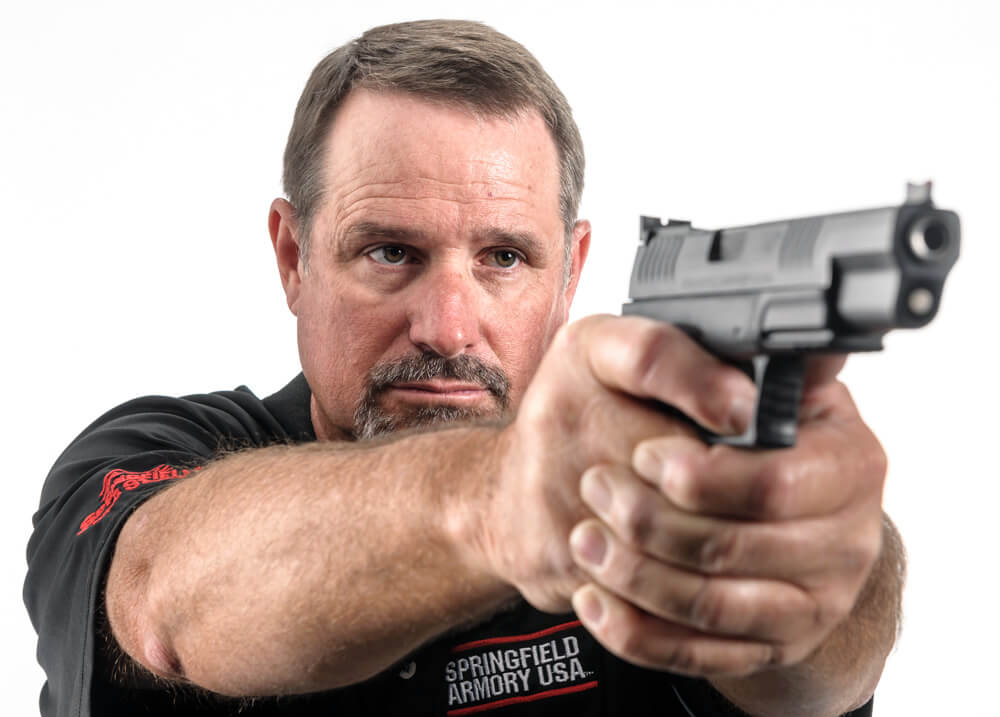
Beyond top marksmanship skill, today’s pro team shooters also need people skills.
“I’ve seen people come in to this who just can’t talk to other people,” says Leatham. “That’s difficult. What a company is looking for is promotion. Winning is good for promotion. But you have to be able to connect with people, too.”
Pro shooters often do in-store promotions. They may man a company booth at an outdoor show or give a shooting workshop. Familiarity with their sponsor company’s entire product line, and the ability to share that information with the public, is a must.
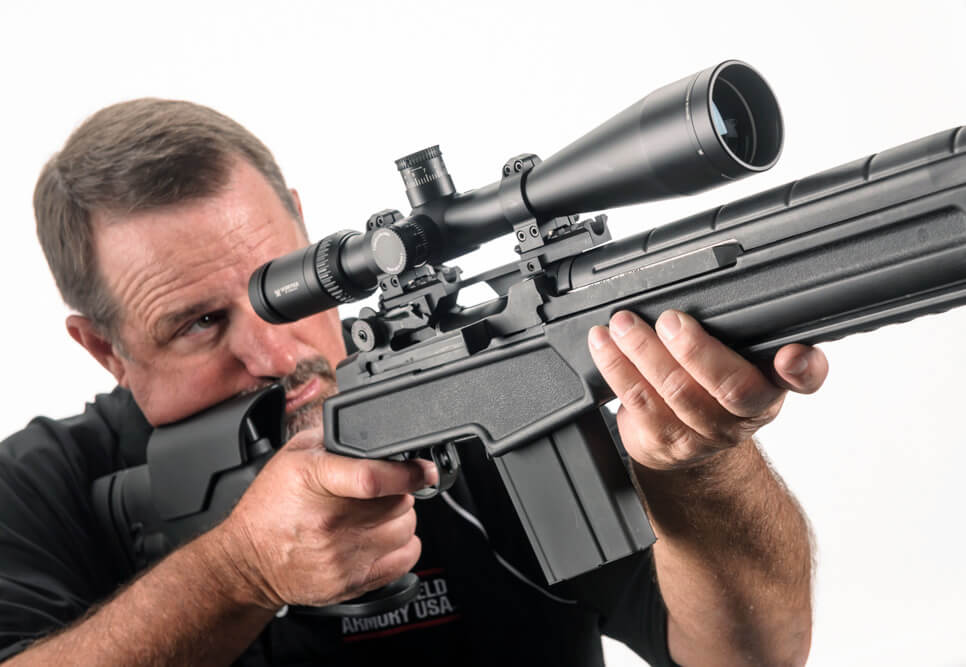
It doesn’t end there. At Hornady, for example, “Social media’s going to a big thing we’re getting into more and more,” notes Emery. “We’re expecting our shooters will have a big presence on Facebook and other such venues.”
Leatham’s advice to a budding handgun shooter with pro team aspirations?
“You have to want to shoot so bad, you’ll do it on your own, develop your skills and push yourself, without expecting to get anything out of it,” he says. “If you do that, you just might make it.”
Editor’s Note: This article was written by Brian McCombie and shared with us by Handguns. The original piece can be viewed here. Also, be sure to check out The Armory Life Forum, where you can comment about our daily articles, as well as just talk guns and gear. Click the “Go To Forum Thread” link below to jump in!
Join the Discussion
Continue Reading
Did you enjoy this article?

 69
69





